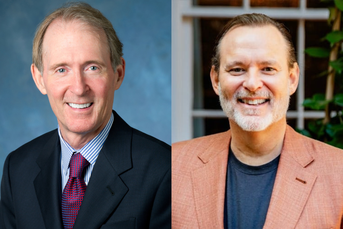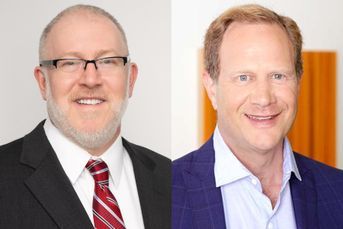Adviser checklist: Don’t forget to do these things before year-end

The end of the year is crucial for tax purposes, and strategies include tax-loss harvesting, charitable gifting and rebalancing client portfolios.
The countdown to 2023 has begun, and financial advisers better get themselves — and their clients — ready before ringing in the new year.
“The end of the year is crucial for tax purposes,” said Christopher Silipigno, CEO of Renaissance Investment Group, part of Stratos Wealth Partners Investors. “Most notably, those above the age of 72 must take required minimum distributions by Dec. 31 or incur a 50% penalty on the untaken amount. For large accounts requiring significant distributions, ensuring the proper RMD is important.”
Also of importance in reducing next year’s tax bill, Silipigno said, are year-end tax-loss harvesting, annual gifting to reduce estate taxes and making charitable donations.
It’s not all about selling and gifting, however. ‘Tis also the season to save for retirement. That means maximizing annual contributions to tax-advantaged accounts such as traditional individual retirement accounts, Roth IRAs and 401(k) plans.
And when all that buying and selling and gifting is complete, it’s time for balancing.
“With respect to portfolios, we suggest balancing across a broad range of asset classes, including inflation-hedge assets, which we often find are underrepresented in portfolios,” said Alex Shahidi of Evoke Advisors. “We believe a well-diversified portfolio has a higher probability of achieving long-term return targets than a more conventional 60/40 allocation. As a reminder, both stocks and bonds underperformed cash during the entire inflationary decade of the 1970s.”
After the balancing is done, Renae Ransdell, wealth adviser at SageView Advisory Group, suggests stopping for a bit of reflection.
“We recommend revisiting your financial plan to make any necessary adjustments, as your spending priorities, comfort level with risk and timeline may have changed over the last year. Spending, time frame and inflation are key variables in a financial plan,” Ransdell said. “Therefore, it is important to assess if your plan and investment strategy continues to align with any changes in key variables going into 2023.”
Rachel McCracken of Coldstream Wealth Management says advisers should take the end of the year as an opportunity to stress-test portfolios, especially for retirees or those on the brink of retirement. (Makes sense, the holiday season is never stress-free!)
“Investors have been through a lot since the onset of Covid in 2020. The transition to work-from-home models and stocks taking off in 2021, only for them to fall off dramatically this year, has rattled many investors. But it has been an especially uncomfortable ride for newly retired or soon-to-be retired investors, who need to get used to being a spender rather than a saver. That transition can be hard for someone who has been saving a portion of their earnings since they were 18,” McCracken said.
Finally, speaking of “stress” management — in the physical sense of the word — advisers should make sure their clients contribute to their health savings accounts when applicable. In 2022, an investor can save up to $3,650 in an HSA if they’re single, while families can sock away $7,300.
“These are pretax contributions, and the earnings grow tax-free. Withdrawals are also tax-free if they are used for qualified medical expenses,” said David Scranton, CEO of Sound Income Strategies.
InvestmentNews presents Trailblazer Award to Mary Beth Franklin
Learn more about reprints and licensing for this article.








